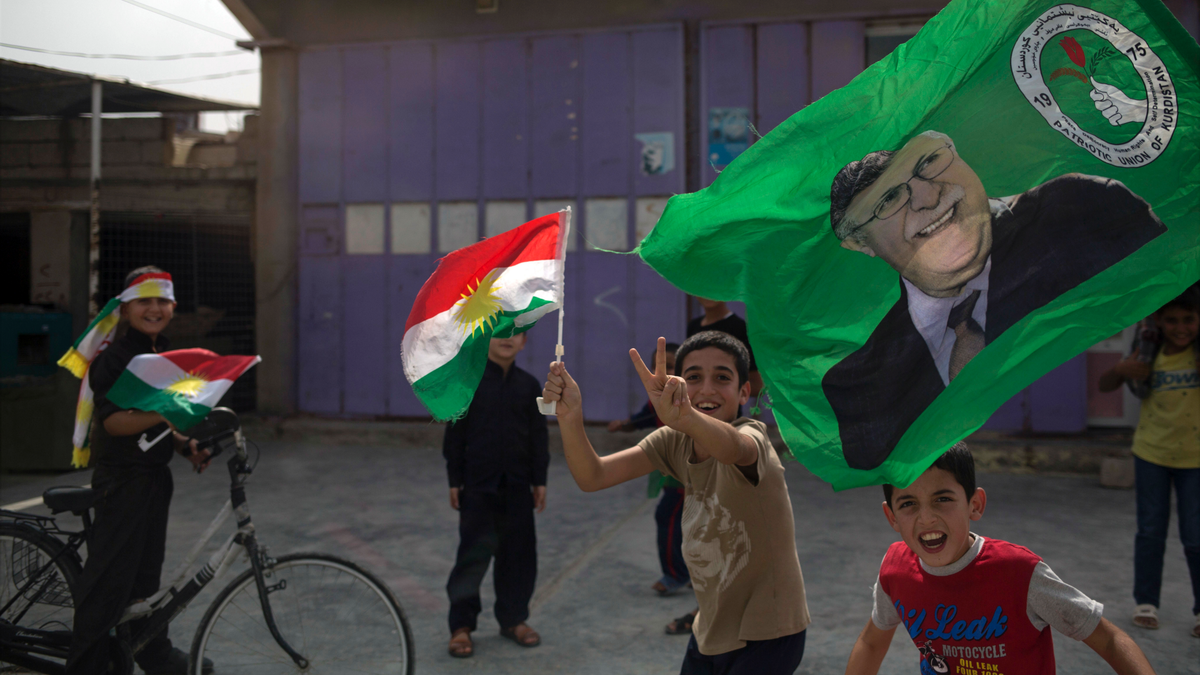
IRBIL, Iraq – Iraq's Kurds hope Monday's non-binding referendum on independence marks the start of a peaceful, negotiated break with Baghdad, but it may have instead placed them on a new collision course with Iraq and its neighbors.
Iraq's central government rejected the vote long before it was held, and Prime Minister Haider al-Abadi has warned of "follow-up steps to protect the unity of the country." Turkey and Iran have staged military drills on the borders of Iraq's Kurdish region, and Turkish President Recep Tayyip Erdogan has threatened to send in troops.
The vote was held peacefully, but the coming days could bring escalating unrest as the Kurds press ahead toward independence, something opposed by virtually the entire international community, including their close ally, the United States.
Initial results are expected Tuesday, with the official count announced later in the week. Here is a look at what comes next.
ROAD TO INDEPENDENCE, OR CONFLICT
Kurdish officials say a "yes" vote will send a message Baghdad cannot ignore, paving the way for negotiations aimed at a peaceful exit. But Iraqi government officials maintain just the opposite, that the referendum will push the two sides further apart and make it even more difficult to resolve longstanding disputes.
The regional government has long been at odds with Baghdad over disputed territories like the oil-rich city of Kirkuk, which are controlled by Kurdish forces but outside their autonomous zone. They have also argued over the sharing of oil revenues, with the Kurds exporting through a Turkish pipeline over objections from Baghdad.
The conflict has been largely peaceful until now, but in recent days both sides have threatened to use military force to protect their interests. In Kirkuk, the epicenter of the territorial dispute, the governor imposed a nighttime curfew after the vote.
A REGIONAL RESPONSE
Both Turkey and Iran condemned the vote, fearing it would inspire their own sizable Kurdish minorities, and both have carried out military drills this week on the borders of Iraq's Kurdish region.
Turkish President Recep Tayyip Erdogan said Monday that Kurdish independence was unacceptable, and a "matter of survival" for his country. Pointing to the military drills along the border, he said "we could arrive suddenly one night."
Turkey has several ways of pressuring the Kurds short of military intervention. Much of the Kurdish region's oil exports flow through a Turkish pipeline, and Turkey is the region's main trading partner.
"Let's see where — and through which channels — will they sell their oil. We have the valve. The moment we shut the valve, that's the end of it," Erdogan said.
THE WAR ON THE ISLAMIC STATE
An armed conflict between Iraq and the Kurds would pit two close U.S. allies against each other and detract from their war against the Islamic State group.
Iraqi and Kurdish forces succeeded in driving IS from the northern city of Mosul in July after a grueling nine-month campaign, but the extremists still control pockets of territory in Iraq, and have a long history of exploiting political vacuums.
Masoud Barzani, the Kurdish regional president who has spearheaded the referendum, insisted ahead of the vote that Iraqi and Kurdish forces would continue to coordinate the fight against the extremists.
POLITICAL REPERCUSSIONS
The Kurdish push for independence is likely to weaken al-Abadi, who took office in 2014 on promises to unite the country, ahead of general elections slated for next year.
The referendum could strengthen hard-liners like former Prime Minister Nuri al-Maliki, who is widely believed to be seeking a return to power, as well as Iran-backed factions and militias. Al-Maliki went further than al-Abadi in his condemnation of the referendum, calling it a "declaration of war."
Although the vast majority of Kurds support independence in principle, many have objected to the referendum, viewing it as a cynical ploy by Barzani to hold onto power after his term expired in 2015. When parliament convened earlier this month, for the first time in two years, nearly half the lawmakers boycotted the session.
Barzani is betting that the referendum will strengthen his hand against his political opponents, but he also stands to take most of the blame if a crisis erupts.
